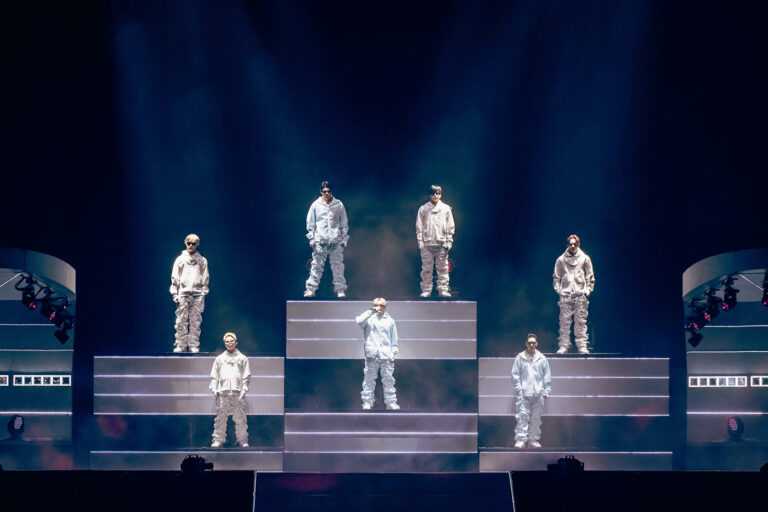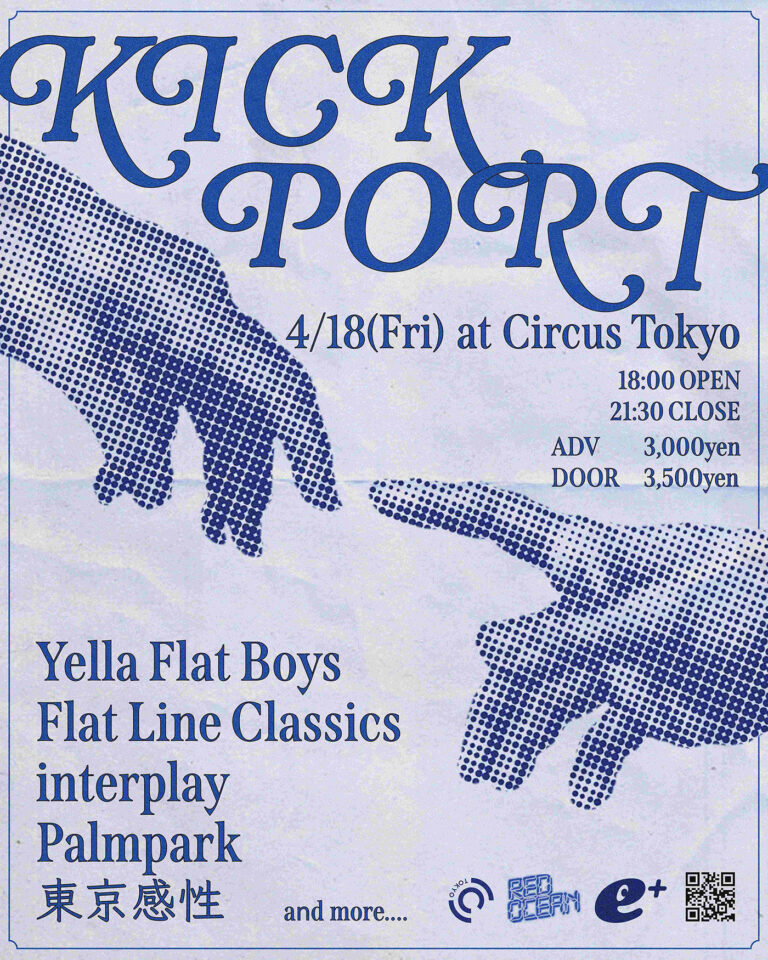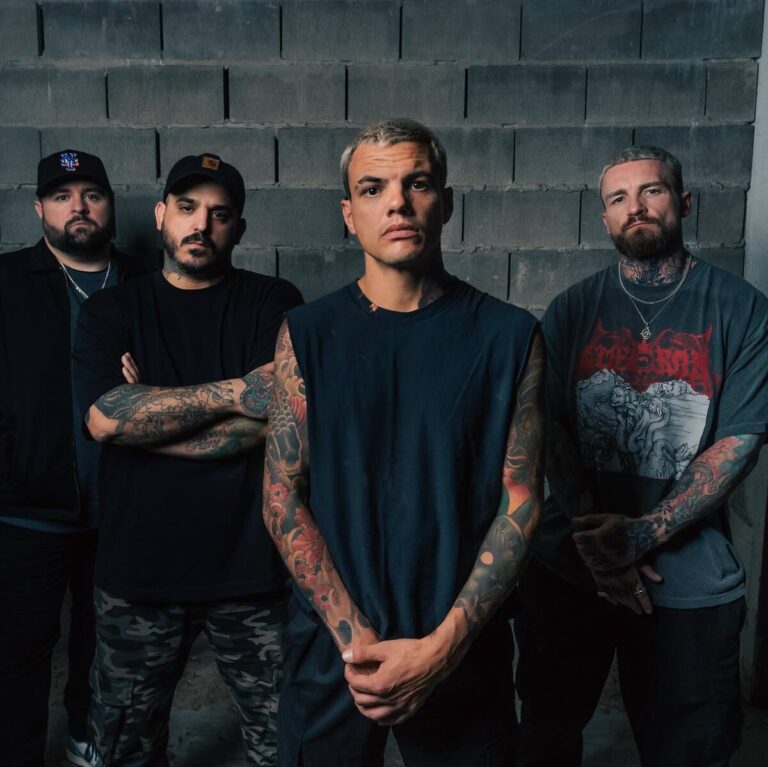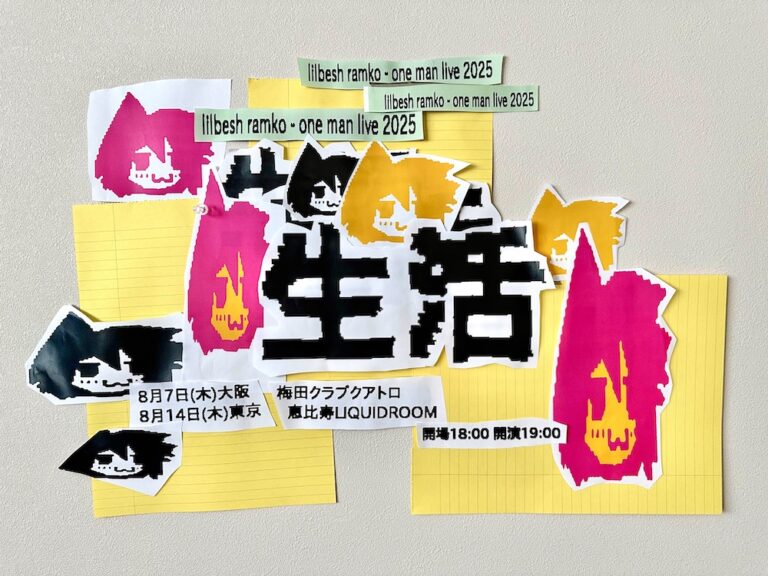■A family living in the Reiwa era travels back in time to June 1944! “I think there are some parts that force us to think about how we think about war.” (Yo Oizumi)
TV Asahi’s 65th anniversary special drama “The Town We Saw at the End,” in which Oizumi Yo will make his first appearance in a script written by Kudo Kankuro, is scheduled to air in September.
It has been 80 years since the war began on December 8, 1941. The horrors of war are still told today. However, wars continue to occur around the world, and new wars are beginning.
The original work for “Owari ni Mita Machi” is the same-titled work by Yamada Taichi, a leading TV scriptwriter who portrays people with strong presence. The script was written with the theme of conveying the harsh experiences of a war survivor to the next generation. In 1982 and 2005, it was adapted into a TV drama by Yamada Taichi himself and drew a great response for its deep content and powerful message.
Now, with the 80th anniversary of the end of the war fast approaching, the story is being adapted into a drama for the third time after some 20 years.
This will be the first time that Kankuro Kudo has written a script for the popular and talented actor Yo Oizumi, who will also be making his first starring appearance on TV Asahi. Kankuro Kudo, who has publicly declared his respect for and fan of Taichi Yamada as a fellow scriptwriter, has written the script. Taichi Yamada’s gem of a family drama about a wartime family will be rebooted as a Reiwa-era version with the first collaboration between Yo Oizumi and Kankuro Kudo.
■Two families born in modern times travel back in time to June 1944!
This work stands out among the works of Yamada Taichi, who established an era as a scriptwriter and novelist, and is a master of home dramas, carefully weaving together human relationships, including family relationships. In 1982, Toshiyuki Hosokawa starred, and in 2005, Kiichi Nakai starred. The story follows the protagonist’s family, who live in both 1982 and 2005, as they travel back in time to 1944 and survive wartime.
This is the third time the series has aired, and the story follows TV scriptwriter Tamiya Taichi (Oizumi Yo), who lives a comfortable, ordinary life in the suburbs of Tokyo in the Reiwa era. One day, the family suddenly travels back in time to June 1944, in the middle of the Pacific War. There are no buildings or shopping centers, no mobile phone service, and it is difficult to obtain food. Taichi and his family are overwhelmed by the huge differences from the Reiwa era, but they witness the shocking reality of wartime. In this harsh battlefield, Taichi and his family try to survive the Pacific War together with Kojima Toshio, the nephew of Taichi’s father’s war comrade, and his son, who also got lost in the past.
How will these two families living in the Reiwa era survive in the era of 1944? And what will be the shocking ending?
■ Yo Oizumi is eager to participate in a work written by Taichi Yamada and scripted by Kankuro Kudo
The protagonist Tamiya Taichi, who travels back in time from the Reiwa era to 1944 and finds himself at the mercy of his family, is played by Oizumi Yo, who has been active in both dramas and movies and has received numerous awards, including the Japan Academy Award for Best Actor, which he has won four times. Oizumi, who has been active in many works, is finally making his first appearance and first lead role in a TV Asahi drama.
Oizumi plays Taichi, a screenwriter who writes TV dramas under the pen name Miyata Ichitaro. Although he has no signature work, he is a “lackluster” protagonist who has been working as a screenwriter for 20 years. At home, he lives with his wife who is obsessed with her part-time job, his teenage daughter, his somewhat rebellious son, and his mother who is showing signs of dementia but is extremely energetic. Although he tends to be shunned by his family, he still lives a very ordinary and peaceful life. One day, Taichi and his family suddenly travel back in time to June 1944. Taichi and his family begin to reveal sides of themselves that were not visible in the modern world.
Oizumi, who will be taking on the challenge of “The Town I Saw at the End,” which will be reborn as a Reiwa version, revealed that he had long wanted to appear in a drama written by Miyato, so he was simply happy. He further commented, “It was a collaboration between two geniuses, with Miyato writing the script for Yamada Taichi’s original work, so I was looking forward to seeing what kind of work it would be.” At the same time, he said that delivering this work now in the Reiwa era, “In an era when we need to think more realistically about war, this work once again forces us to think about how we think about war.” Keep an eye on Oizumi’s appearance as he takes on this “drama that makes you think about war” with all his heart and soul.
■ “Because the main character is a screenwriter, I couldn’t think of it as something that didn’t concern me.” (Kudou Kankuro)
Screenwriter Kudo Kankuro has brought the legendary, shocking work written by Yamada Taichi 40 years ago into a new life in the Reiwa era.
Miyato, who respects Yamada Taichi as a fellow screenwriter and is a self-proclaimed fan, said of this work, “Because the screenwriter is the main character, I couldn’t think of this as something that didn’t concern me.” He went on to say that he was once again impressed by the greatness of Yamada’s work, saying, “The main character is life-sized, but the story is fantasy, which is very Yamada-sensei-like, and I was impressed.” Miyato said of the script for this work, “I feel like I’ve borrowed the power of Yamada-sensei’s original work and have acquired a new style,” revealing that it is “different from usual” and a new frontier for Miyato.
A luxurious cast has been assembled for this film, including the family surrounding the protagonist and the parent and child who travel back in time to the Showa era. Stay tuned for further updates.
■ Comment from Yo Oizumi
Q. This is the first TV adaptation of Taichi Yamada’s original work in 20 years, with a script by Kankuro Kudo. How did you feel when you received the offer to appear in the film?
Oizumi:I received this offer right after I co-starred with Miyato-san as an actor in the movie “Hello, Mother” (2023), and I was simply happy because I had thought that I would like to appear in a drama written by Miyato-san someday if I had the opportunity. Moreover, it was a collaboration between two geniuses, with Miyato-san writing the script based on Taichi Yamada’s original work, so I was looking forward to seeing what kind of work it would be about the very heavy theme of war.Q. What did you think when you actually read Miyato’s script?
Oizumi:The story is based on Yamada’s worldview written 40 years ago, but with plenty of modern touches. And even though it has the theme of war, Miyato’s unique humor is boldly incorporated, and I was really impressed by how interesting the script is. I think it’s also because the original book that Yamada wrote is so interesting. There’s a surprising twist at the end of the story, and I was surprised to learn that it was written 40 years ago, and I feel like this ending weighs even heavier on my mind now, 40 years later.Q. Please tell us your impression of the character Tamiya Taichi, played by Oizumi.
Oizumi:Taichi and his family travel back in time to Showa 19, but he can’t adapt easily, so he’s a useless father. He starts to feel inferior for being useless, and his children also criticize him harshly. It’s a drama that makes you think, “What if I…?” When I compare myself to the role, I think there is no one more useless than me, so I was scared that I would be scolded and beaten up by my family. I’m a man who couldn’t even get a part-time job in college (laughs). On the other hand, when Taichi has to accept the reality of Showa 19, he takes a certain action, and I thought that he was a very courageous person to act when the country itself was leaning towards war.Q. How do you feel about releasing this work now in the Reiwa era?
Oizumi:This work does not simply recreate and convey the war that took place in the past, but rather people living in the present time travel back to wartime, which makes it feel even more vivid. It has been made into a drama twice so far, in 1982 and 2005, but the first one traveled back about 40 years from 1982, the second traveled back about 60 years from 2005, and now the third one asks what would happen if we in the year 6 of Reiwa were to travel back 80 years to 1944. Yamada’s book itself is very suitable for remaking in each era. Because people from each era actually enter wartime, viewers in any era can think about war more realistically, and I think it is a drama that will make you think no matter when it is made. Furthermore, there will be many people, especially young people, who will think that they want to watch this work because it is written by Miyato, and I think that is also really meaningful. In an era where we need to think about war more realistically, I think that this work once again forces us to think about how we think about war.Q. Please give a message to the viewers.
Oizumi:It’s not a so-called reenactment drama that looks back on the painful history of war, but a work that shows what happens when a modern person travels back in time to that era, and there’s some humor that’s unique to Miyato’s world, so I think it’s an easy drama to watch. At the end, there’s a very thought-provoking development, and I think it’s a work that will give you a chance to think about “war,” so I hope you’ll watch it.■ Comment from Kankuro Kudo
Q. What was your impression when you read Taichi Yamada’s original work?
Miyato:Since the main character is a screenwriter, I couldn’t help but think of it as something that could happen to someone else. As with “Summer with Strangers” (Shincho Bunko), the main character is set to be life-sized, but the story is a fantasy, which I thought was very Yamada-like and admired. I have read the novel many times, but when I was asked to write the script this time, I made the decision not to watch the TV drama version. It’s a once-in-a-lifetime chance, and I wanted to tackle it as an adaptation of the novel, not a remake.Q. What is your impression of the lead actor, Yo Oizumi?
Miyato:Exquisitely negative. I think that’s the common point between Oizumi, Yamada-sensei, and me. Maybe because I’m in charge of writing plays for the theater company (TEAM NACS), I’ve always thought that I have the face of a thinker and creator, so I thought the role of a screenwriter was perfect. I started writing the play when we were co-starring in the movie “Hello, Mother” (2023), and Oizumi said to me on the set, “Please call Miyato-san’s work,” so I thought he would be surprised if I called him right away, so I wrote it for him before I even offered him the role.
Q. Please tell us if there was anything you paid particular attention to or thought was important when writing the script for this film.
Miyato:The big difference between me and Professor Yamada is whether or not we both experienced war, but I took advantage of that and wrote the story with the main character’s “anti-war” sentiment, which he had no personal experience of, in mind as he comes to feel it through this harsh story. I think that by giving the characters emotion, we can feel the stupidity of war.Q. Please give a message to the viewers.
Miyato:Apparently, this is a work that my favorite Taichi Yamada said, “I’m okay with doing this.” I’ve written a lot of TV dramas this year, and I’m surprised at how wide they are, but this time, I’m using the power of Yamada-sensei’s original work to feel like I’ve found a new style. Yes. It’s different from usual. Look forward to it.
Program Information
TV AsahiTV Asahi 65th Anniversary Drama Premium “The Town We Saw at the End”
September broadcast
Starring: Yo Oizumi
Original work: Yamada Taichi “The Town I Saw at the End” (published by Shogakukan Bunko)
Screenplay: Kankuro Kudo
Directed by: Osamu Katayama
“The Town I Saw at the End” program site
https://www.tv-asahi.co.jp/owarinimitamachi/

![Shingo Katori asks Ryu -chan, exclusively model for “KOGYARU”, “Ryu, that girl? Boy who was with you!” What is the answer?[Nanana]](https://tokytunes.com/wp-content/uploads/2025/02/1738497766_Shingo-Katori-asks-Ryu-chan-exclusively-model-for-KOGYARU-Ryu-768x432.jpg)














